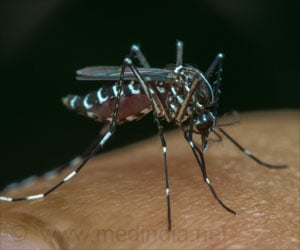
When the large-scale codon re-encoding method was applied by Antoine Nougairede and his colleagues to poliovirus and Influenza A virus, it resulted in a live but attenuated virus that had significant reduction of viral fitness.
This study demonstrates that a random approach reduced the replicative fitness of CHIKV in both primate and arthropod cells.
The strategy also prevented the reversion of the attenuated phenotype by mutation or recombination, thus reducing the possibility that the newly created virus strain could evolve back to the pathogenic version.
The findings suggest that large-scale codon re-encoding can provide a strong basis for the rapid design of next-generation viral vaccines against emerging viral pathogens, as soon as their genome sequence has been determined.
It represents another route to vaccine development as it intrinsically alleviates the likelihood of novel pathogenic properties of the designed live vaccine, and allows modulation of the amount of reduced fitness by altering the terms and degree of the genetic re-encoding.
Advertisement
This report has been published in the Open Access journal, PLOS Pathogens.
Advertisement













